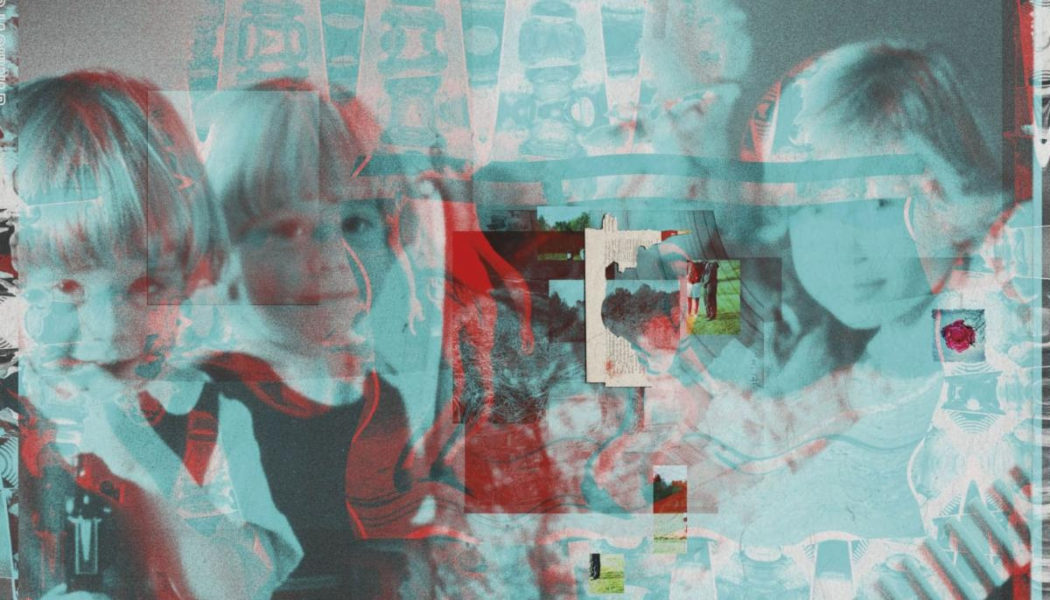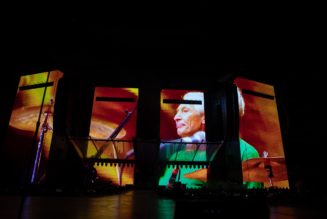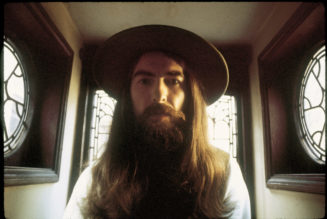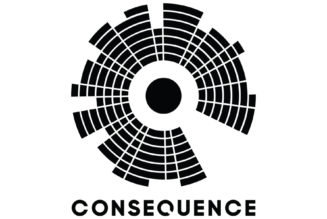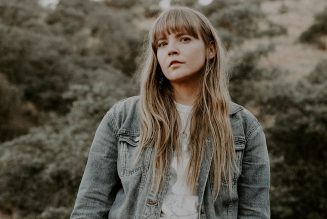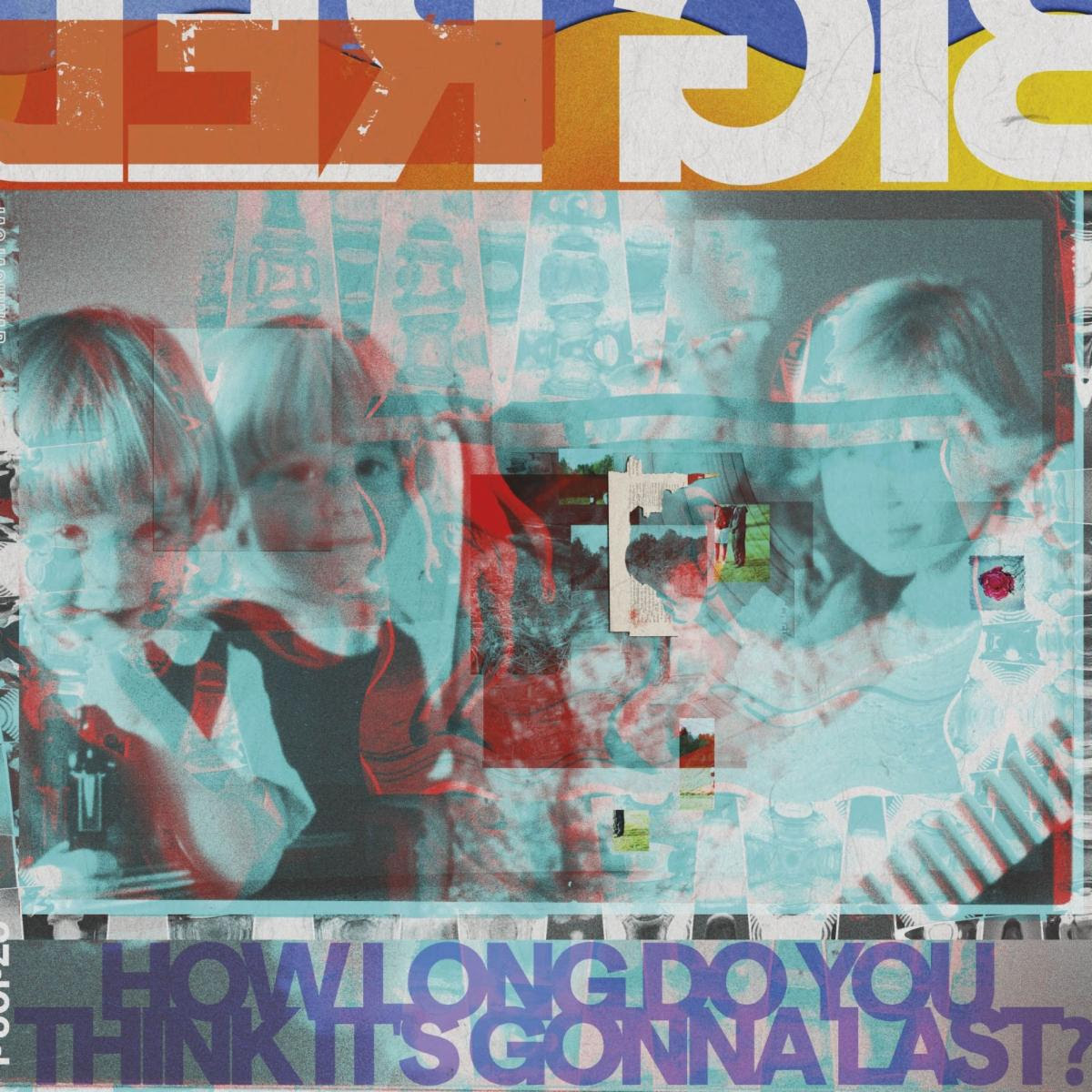
The National and Bon Iver are two of the biggest names in indie music, and they rose to prominence around the same time. The National cemented themselves as mainstays with their 2007 breakthrough, Boxer, and Bon Iver released their storied debut, For Emma, Forever Ago, just a couple of months later. It only makes sense that their paths would eventually converge, and they did three years ago when The National’s Aaron Dessner and Bon Iver’s Justin Vernon made a collaborative record together under the moniker Big Red Machine. Now, they’ve released their sophomore effort, How Long Do You Think It’s Gonna Last?, and it embraces the ethos of collectivism even more than its predecessor.
Although Big Red Machine’s first record was by nature a joint endeavor, How Long… features an even wider gamut of guest appearances. Fleet Foxes’ Robin Pecknold contributes vocals to “Phoenix,” which conjures that band’s latest album, the autumnal Shore. English pop songwriter Ben Howard, whose last album Dessner produced, lends his voice to the plaintive piano ballad “June’s a River.” Indie staple Sharon Van Etten, Lisa Hannigan, and My Brightest Diamond’s Shara Nova are featured on “Hutch,” an endearing tribute to Dessner’s late friend and artist, Scott Hutchison of Frightened Rabbit. Even pop behemoth Taylor Swift, who Dessner worked with on Swift’s woodsy companion albums folklore and evermore, makes cameos on “Renegade,” which she takes over lead vocal duties for, and “Birch,” in which she’s relegated to the background.
This abundance of collaboration furthers the notion of Vernon’s and Dessner’s 37d03d, or PEOPLE, artist collective. Occasionally, How Long… feels weighed down by its seemingly endless supply of guests, especially given its hour-long runtime. It can sound unfocused and disjointed at times, but that’s a minor issue given the fact that these songs generally cater to each artist’s strengths. “Renegade,” for instance, would sound at home on one of Taylor Swift’s own records. She sings candidly of secondhand anxiety, begging a loved one to “get your shit together, so I can love you” over Dessner’s and Vernon’s percussive production. “Phoenix” is well-suited for Robin Pecknold’s warm vocal timbre, and it merges Fleet Foxes and Big Red Machine in a way that sounds natural rather than forced. Ben Howard’s vocals on “June’s a River” complement Dessner’s piano-playing, which has often been the unsung hero of some of The National’s best songs, such as “Pink Rabbits,” “Fake Empire,” and “Light Years,” to name a few.
For the first time, Dessner takes the mic on his own songs. On “Brycie,” he pays homage to his brother and National bandmate, Bryce, who arranged strings for the song. “You watched my back when we were young / You stick around when we’re old,” Dessner sings. On “The Ghost of Cincinnati,” he evokes Carrie-&-Lowell-era Sufjan Stevens in his muted delivery to sing about his Midwestern hometown: “Cut through Ault Park ‘cause it’s safe now / I stalk the streets in my nightgown.” Although hearing Dessner’s voice gives How Long… even more variety, his vocal melodies are often weaker when contrasted directly with Vernon’s.
The songs on How Long… are significantly more tangible this time around. Whereas the tracks on Big Red Machine’s self-titled debut frequently sounded like labyrinthine voyages into modular synthesis, these songs are more tactile. “Reese” is one of the most compelling songs Dessner and Vernon have worked on together, and it combines Vernon’s Auto-Tuned, emotive style on Bon Iver’s 22, A Million with Dessner’s propensity for poignant piano on The National’s I Am Easy to Find and Trouble Will Find Me. But there are some outliers, too, such as the jittery mid-album cut “Easy to Sabotage,” which would have fit perfectly on Big Red Machine’s first record.
Big Red Machine has always been a project centered on collectivism, and How Long Do You Think It’s Gonna Last? takes that collagist mindset a step further. Though periodically unfocused, it mostly succeeds in not only championing the spirit of collaboration but also accentuating its guests’ artistic strengths. Throughout this record, Vernon and Dessner find joy in community.
